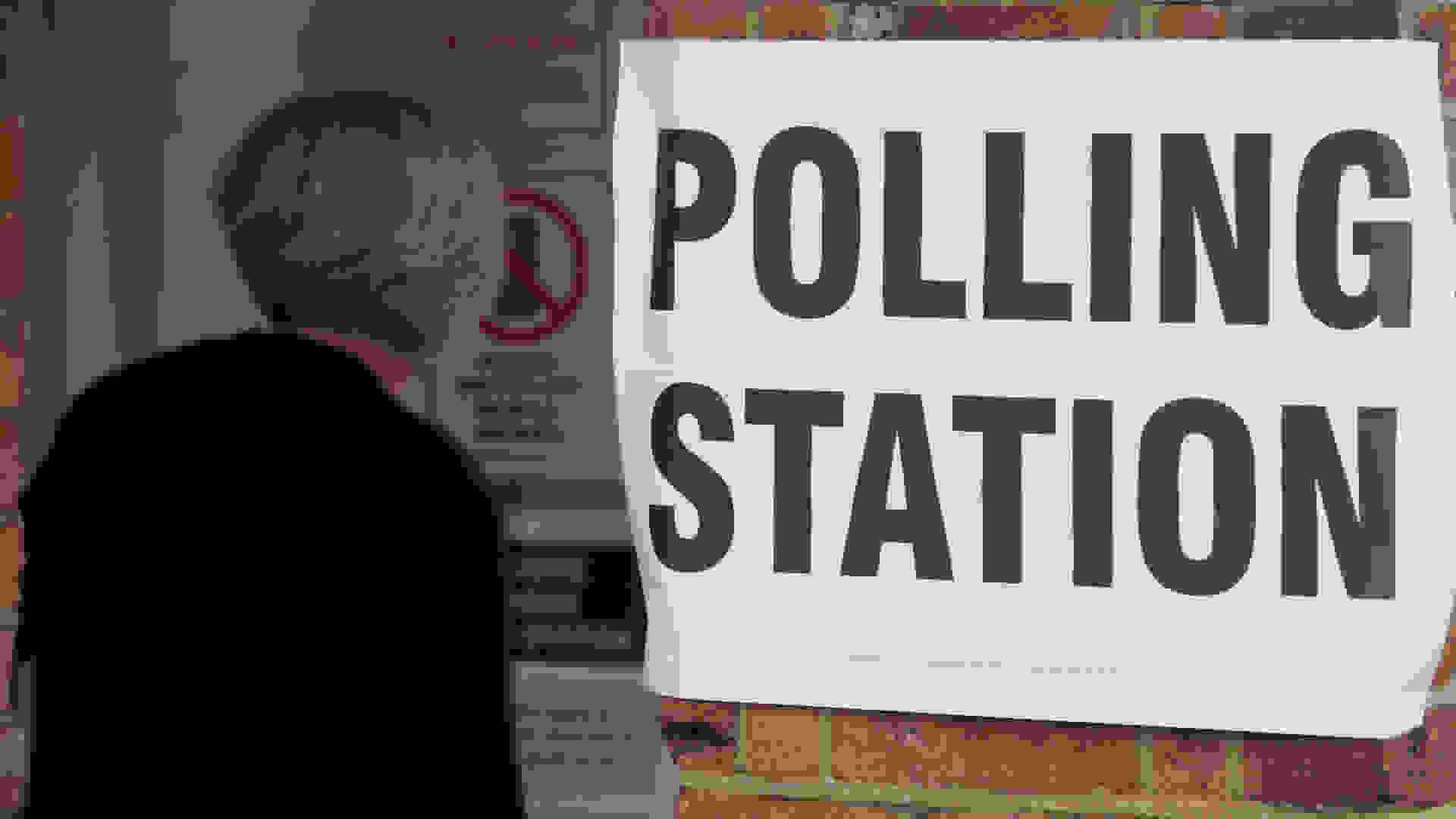How important are competence and leadership in people's party choice?
Wed. 11 Jul 2018
At a time of political upheaval – with questions being asked about the leadership, policies and competence of both main UK parties – our Audit of Political Engagement reveals some interesting findings about the ways in which Conservative and Labour supporters view these factors differently and how their importance has changed over time.

, University of Manchester/Hansard Society
Lawrence McKay
Lawrence McKay
ESRC CASE PhD Studentship, University of Manchester/Hansard Society
Lawrence is a PhD student at the University of Manchester. His research focuses on the representation gap, looking at local influences on public perceptions of politics and politicians, and making use in particular of the British Election Study dataset. His work is co-supervised by Professor Edward Fieldhouse and Professor Maria Sobolewska.
Lawrence is an ESRC CASE scholar and his PhD is partly supported by the Hansard Society, with which he collaborates to develop the impact of his research.
Lawrence was previously a student at the University of Exeter, completing a BA in History and an MRes in Politics.
Get our latest research, insights and events delivered to your inbox
Share this and support our work
In the recent Audit 15 study (fieldwork in December 2017) we revisited a question from Audit 4 (fieldwork in December 2006) which asked people to identify the 'two or three' of fifteen suggested options which they believed were ‘usually most important to you in deciding which political party to vote for’.
Labour supporters are somewhat more likely to emphasise policy. Conservative supporters are a good deal more likely to emphasise leadership.
The results show that supporters of different parties generally share a common view about most of the suggested factors when deciding who to vote for. However, there are important differences between party supporters in relation to three factors: which party is perceived to be the ‘most competent’, ‘has a leader I prefer’ and ‘has policies I support’.
The table below indicates the percentage of Labour- and Conservative-supporting respondents in Audit 15 who selected each priority:
Most important when deciding which political party to vote for:

Two things stand out here. Firstly, Labour supporters are somewhat more likely to emphasise policy than Conservative supporters. Secondly, Conservative supporters are a good deal more likely to emphasise leadership and competence than Labour supporters, with the sharpest divide being over the importance of competence. This fits with some previous literature suggesting that suggesting that supporters of the right tend to be more leader-focused.
The analysis above cannot tell us whether these divides within the electorate are enduring parts of the landscape or new. However, as the same question was asked previously, it is possible to compare the significance of these factors among the two parties’ supporters in Audit 4 and Audit 15.
Most important when deciding which political party to vote for:

* Indicates that the change is statistically significant.
The results set out in the table above indicate that while the divide over the importance of competence is not new, the divisions over policy and leadership are. Conservative supporters have become significantly less policy-focused by 2017, compared to the 2006 sample. Conversely, they have become a great deal more focussed on leadership.
The data also shows that priorities have changed most among Conservative supporters: none of the shifts observed among Labour supporters is statistically significant.
Because the Audit has not tracked this question each year, it is not possible to determine whether the change in attitudes among party supporters has occurred gradually since 2006 or is a more recent phenomenon. However, both the 2015 and 2017 election campaigns run by the Conservative Party were heavily personalised. Personalised campaigns are not unique to the Conservatives by any means, but they have employed them both more intensively and more recently.
The recent Conservative campaign – and David Cameron’s re-election campaign of 2015 – were fought, in large part, on the basis that the party had a superior leader to that of the Labour party, with policy often being downplayed. Bale and Webb claim that the 2017 Conservative campaign was ‘exceptionally presidential’ – best demonstrated by its campaign leaflets which neglected local issues and focused instead on presenting its candidates ‘standing with Theresa May’.
It seems likely that Conservative supporters have become more leader-focussed and less policy-focussed since the 2015 general election
Changes in the voting coalition might also play a role. Research by Bartle suggests that older voters are more likely to be leadership voters. As the Conservative Party has become steadily more dependent on older voters since 2010, its overall coalition may have become more concerned with leadership.
Other sources of data would support the suggestion that the crucial shifts have occurred in recent years, particularly since 2015. The ‘Political Triangle’ surveys conducted by IpsosMORI have tracked people’s priorities for their vote intermittently since the 1980s, comparing the effects of leaders, policies and parties.
IpsosMORI ask people to allocate ten ‘points’ according to the importance of each factor to their vote. In pre-election surveys in 2005, 2010 and 2015, they found that there were only small differences in the mean number of points that Conservative and Labour supporters gave to policy and leaders. In 2017, however, leaders were significantly more important to Conservatives than Labour supporters, and policy was more important to Labour supporters. While some aspects still remain in doubt – we do not know when and why competence became more important to Conservatives – it seems likely that Conservative supporters have become more leader-focussed and less policy-focussed since the 2015 general election.
Conservative support appears to be heavily dependent on perceptions of competence. As such, if political events conspire to provide a negative shock to that sense of competence, at least some Conservative voters could withdraw their support from the party. The principle risk, in this regard, centres on Brexit: as Green and Jennings have pointed out, should the Conservatives preside over a major crisis then the situation could significantly hurt the party’s reputation for competence.
In contrast, declining confidence in Jeremy Corbyn among 2017 Labour supporters, as found in recent opinion polls, may matter less than some commentators think because Labour supporters do not appear to set as much store by leadership when deciding who to vote for. While many may still withdraw their support from Labour, the Audit data would suggest this is far from certain.
McKay, L. (2018) How important are competence and leadership in people's party choice? (Hansard Society: London)
More
Related
Blog / Controverted elections: how disputed results used to be part and parcel of English political and parliamentary life
Disputed parliamentary election results – often taking months to resolve – were a frequent feature of English political culture before the reforms of the 19th century. But how could defeated candidates protest the result of an election, and how were such disputes resolved?
Blog / The Brecon and Radnorshire recall petition process: personal reflections by Sir Paul Silk
As an elector in Brecon and Radnorshire, Hansard Society Trustee Sir Paul Silk sets out 12 shortcomings he observed in the recall petition process that led on 21 June to the triggering of a parliamentary by-election in the constituency.
Blog / The Independent Group of MPs: will they have disproportionate influence in the House of Commons?
The roles occupied by members of The Independent Group - particularly on select committees, where they retain a number of important posts and command two and a half times as many seats as the Liberal Democrats – could give them more influence than their small, non-party status might normally be expected to accord them.
Journal / Parliamentary Affairs: special issue on 'Parliamentary work, re-selection and re-election' (vol 71, issue 4, 2018)
This special issue of Parliamentary Affairs brings together comparative research across European legislatures to see how much influence MPs' day-to-day legislative and scrutiny work has on voters when they head to the polls. This issue also includes then-Commons Speaker John Bercow's 2016 Bernard Crick Lecture, 'Designing for Democracy'.
Blog / How important are competence and leadership in people's party choice?
At a time of political upheaval – with questions being asked about the leadership, policies and competence of both main UK parties – our Audit of Political Engagement reveals some interesting findings about the ways in which Conservative and Labour supporters view these factors differently and how their importance has changed over time.
Blog / 'A public phenomenon... impossible to explain': franchise reform in the long 18th century
The first women in the UK got the vote 100 years ago - but what about the preceding centuries? As the Vindication of the Rights of Woman was published in 1792, how were debates surrounding women’s suffrage being framed? And why did it take 86 years after the extension of male suffrage in 1832 for the franchise to be granted to just a small number of women?
Blog / Populist personalities? The Big Five Personality Traits and party choice in the 2015 UK general election
James Dennison examines the association between personality traits and party choice in the 2015 UK General Election.
Blog / Digital didn't win it, but it did shape the campaign
Labour got the most mentions, but how many of those were positive? And UKIP were ahead of the Conservatives on tweets but it didn’t turn into seats. Social media rumbled on throughout the campaign, largely an echo chamber, not a place for debate.
Blog / Suppose they gave a war and no-one came?
'Suppose they gave a war and no one came?' became a catchphrase of the US peace movement in the 1960s. What happened over the last week in British politics couldn’t help but remind me of it. Why?
Reports / MPs and Politics In Our Time
This 2005 report reviewed the evidence on public attitudes towards MPs and political institutions, and presented findings on MPs' own views of their relationship with voters. It set out a far-reaching agenda for change in the relationship between electorate and the elected in the interests of building public trust and encouraging democratic renewal.
Latest
Guides / Financial Scrutiny: the Budget
In order to raise income, the government needs to obtain approval from Parliament for its taxation plans. The Budget process is the means by which the House of Commons considers the government’s plans to impose 'charges on the people' and its assessment of the wider state of the economy.
Guides / Financial Scrutiny: the Estimates Cycle
In order to incur expenditure the government needs to obtain approval from Parliament for its departmental spending plans. The annual Estimates cycle is the means by which the House of Commons controls the government’s plans for the spending of money raised through taxation.
Data / Coronavirus Statutory Instruments Dashboard
The national effort to tackle the Coronavirus health emergency has resulted in UK ministers being granted some of the broadest legislative powers ever seen in peacetime. This Dashboard highlights key facts and figures about the Statutory Instruments (SIs) being produced using these powers in the Coronavirus Act 2020 and other Acts of Parliament.
Briefings / The Economic Crime (Transparency and Enforcement) Bill: four delegated powers that should be amended to improve future accountability to Parliament
The Bill seeks to crack down on ‘dirty money’ and corrupt elites in the UK and is being expedited through Parliament following Russia’s invasion of Ukraine. This briefing identifies four delegated powers in the Bill that should be amended to ensure future accountability to Parliament.
Articles / Brexit and Beyond: Delegated Legislation
The end of the transition period is likely to expose even more fully the scope of the policy-making that the government can carry out via Statutory Instruments, as it uses its new powers to develop post-Brexit law. However, there are few signs yet of a wish to reform delegated legislation scrutiny, on the part of government or the necessary coalition of MPs.